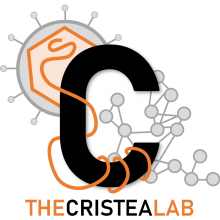The Nuclear DNA Sensor IFI16 Indiscriminately Binds to and Diminishes Accessibility of the HSV-1 Genome to Suppress Infection
Publication Year
2022
Type
Journal Article
Abstract
Mammalian host defense against viral infection includes broad-acting cellular restriction factors, as well as effectors of intrinsic and innate immunity. IFI16 is a critical nuclear host defense factor and intrinsic immune protein involved in binding viral DNA genomes, thereby repressing the replication of nucleus-replicating viruses, including the human herpes simplex virus 1. Human cells identify invading pathogens and activate immune signaling pathways through a wide array of pattern recognition receptors, including DNA sensors. The interferon-inducible protein 16 (IFI16) is a nuclear DNA sensor that recognizes double-stranded DNA from a number of viral sources, including genomes of nuclear-replicating viruses. Among these is the prevalent human pathogen herpes simplex virus 1 (HSV-1). Upon binding to the HSV-1 DNA genome, IFI16 both induces antiviral cytokine expression and suppresses virus gene expression. Here, we used a multiomics approach of DNA sequencing techniques paired with targeted mass spectrometry to obtain an extensive view of the interaction between IFI16 and the HSV-1 genome and how this binding affects the viral DNA structure and protein expression. Through chromatin immunoaffinity purification coupled with next-generation DNA sequencing (ChIP-seq), we found that IFI16 binds to the HSV-1 genome in a sequence-independent manner while simultaneously exhibiting broad enrichment at two loci: UL30, the viral DNA polymerase gene, and US1 to US7. The assay for transposase-accessible chromatin with sequencing (ATAC-seq) revealed that these two regions are among the most accessible stretches of DNA on the genome, thereby facilitating IFI16 binding. Accessibility of the entire HSV-1 genome is elevated upon IFI16 knockout, indicating that expression of IFI16 globally induces chromatinization of viral DNA. Deletion of IFI16 also results in a global increase in the expression of HSV-1 proteins, as measured by parallel reaction monitoring-mass spectrometry of viral proteins representing 80% of the HSV-1 genome. Altogether, we demonstrate that IFI16 interacts with the HSV-1 genome in a sequence-independent manner, coordinating epigenetic silencing of the viral genome and decreasing protein expression and virus replication. IMPORTANCE Mammalian host defense against viral infection includes broad-acting cellular restriction factors, as well as effectors of intrinsic and innate immunity. IFI16 is a critical nuclear host defense factor and intrinsic immune protein involved in binding viral DNA genomes, thereby repressing the replication of nucleus-replicating viruses, including the human herpes simplex virus 1. What has remained unclear is where on the viral genome IFI16 binds and how binding affects both viral DNA structural accessibility and viral protein expression. Our study provides a global view of where and how a nuclear restriction factor of DNA viruses associates with viral genomes to exert antiviral functions during early stages of an acute virus infection. Our study can additionally serve as a systems-level model to evaluate nuclear DNA sensor interactions with viral genomes, as well as the antiviral outcomes of transcriptionally silencing pathogen-derived DNA.
Journal
mSystems
Volume
7
Pages
00198-22

